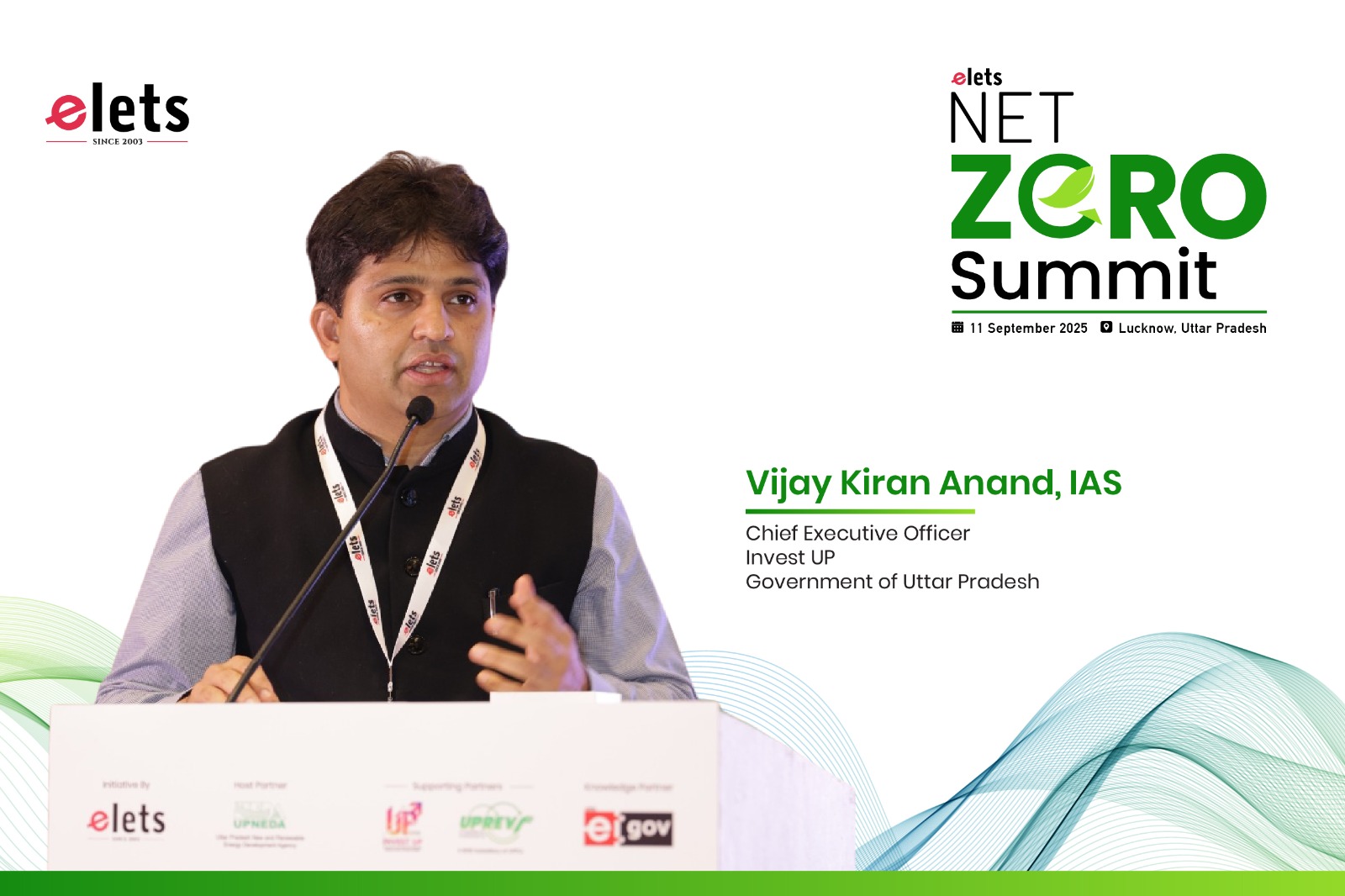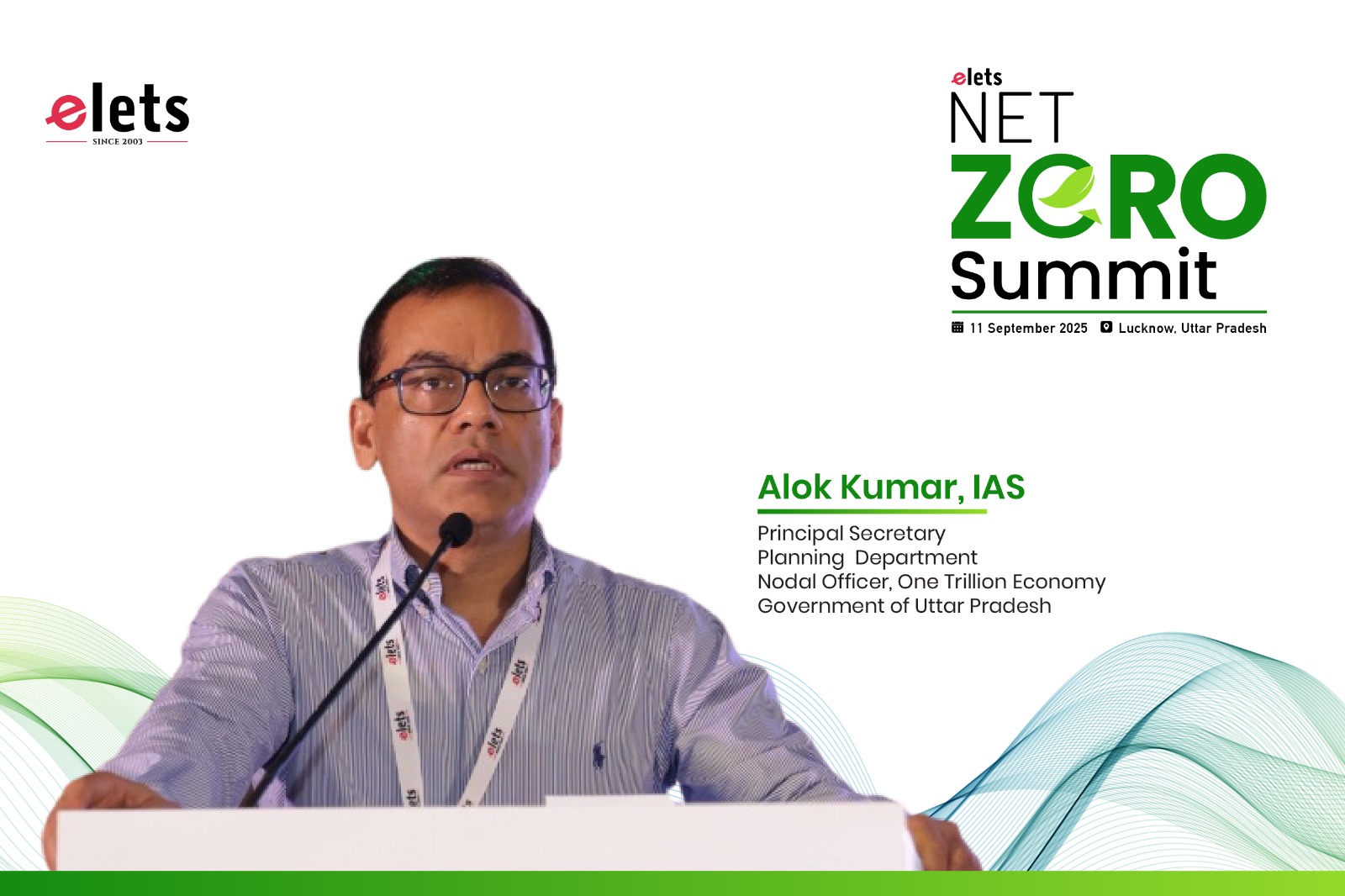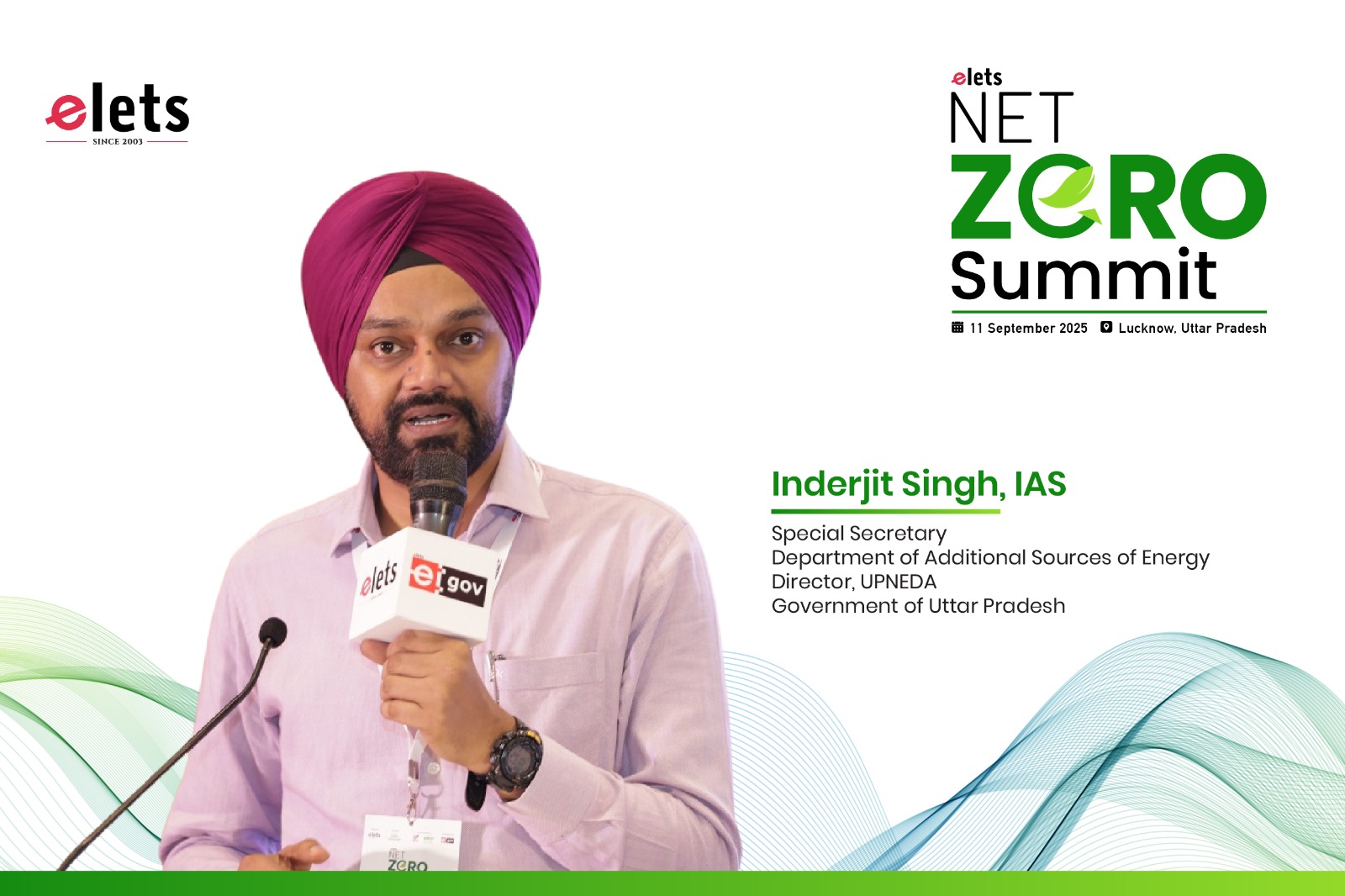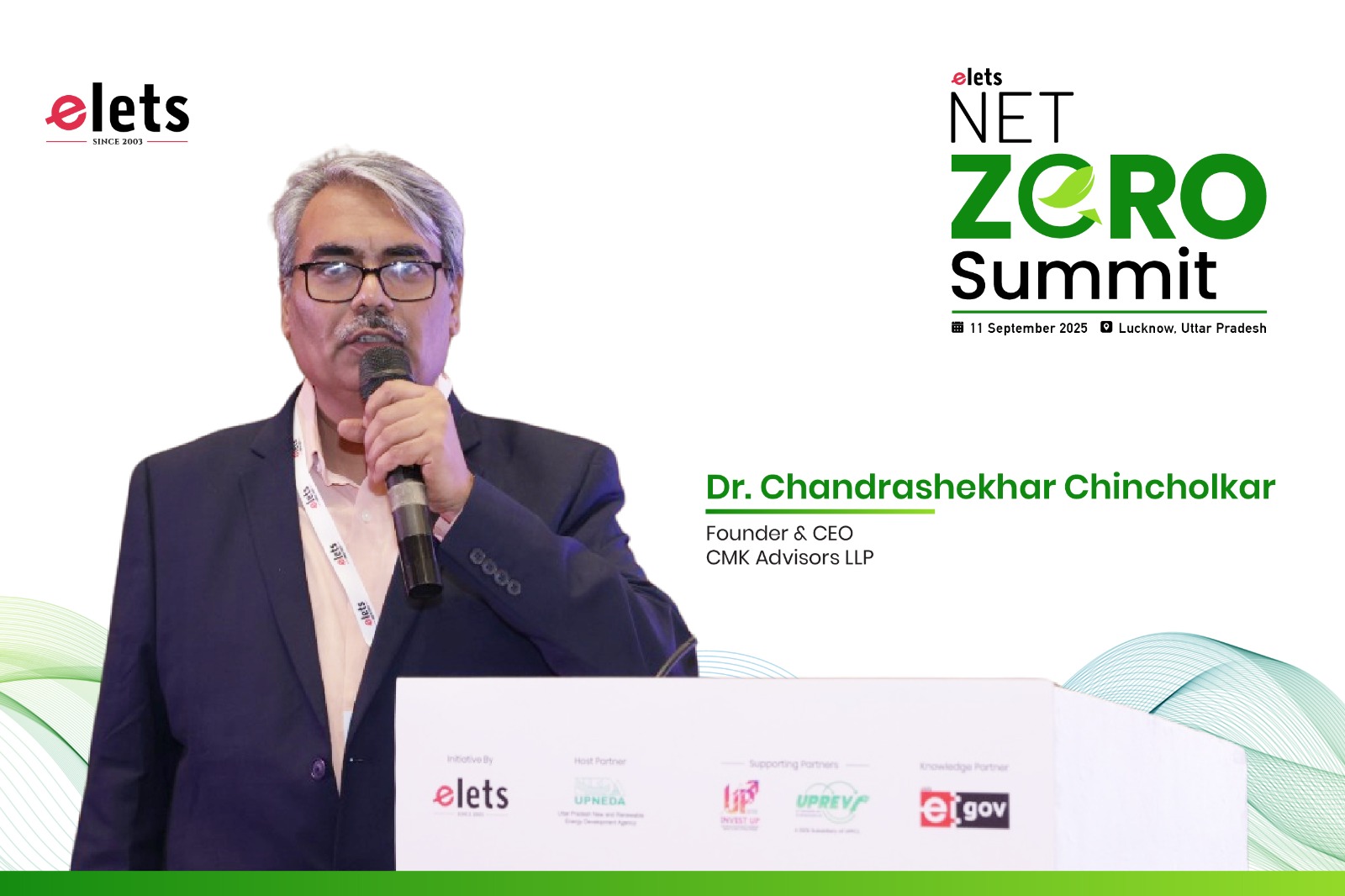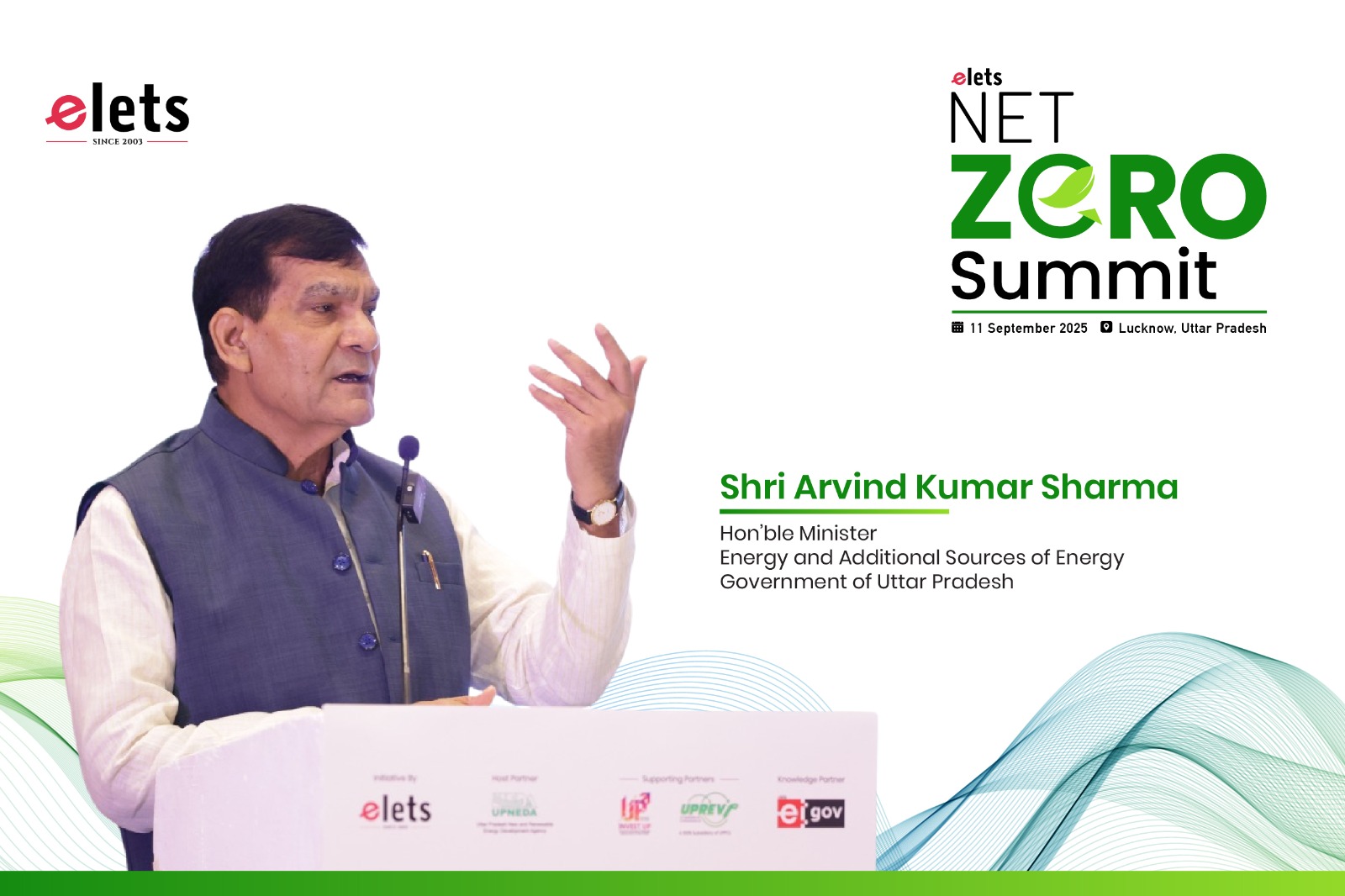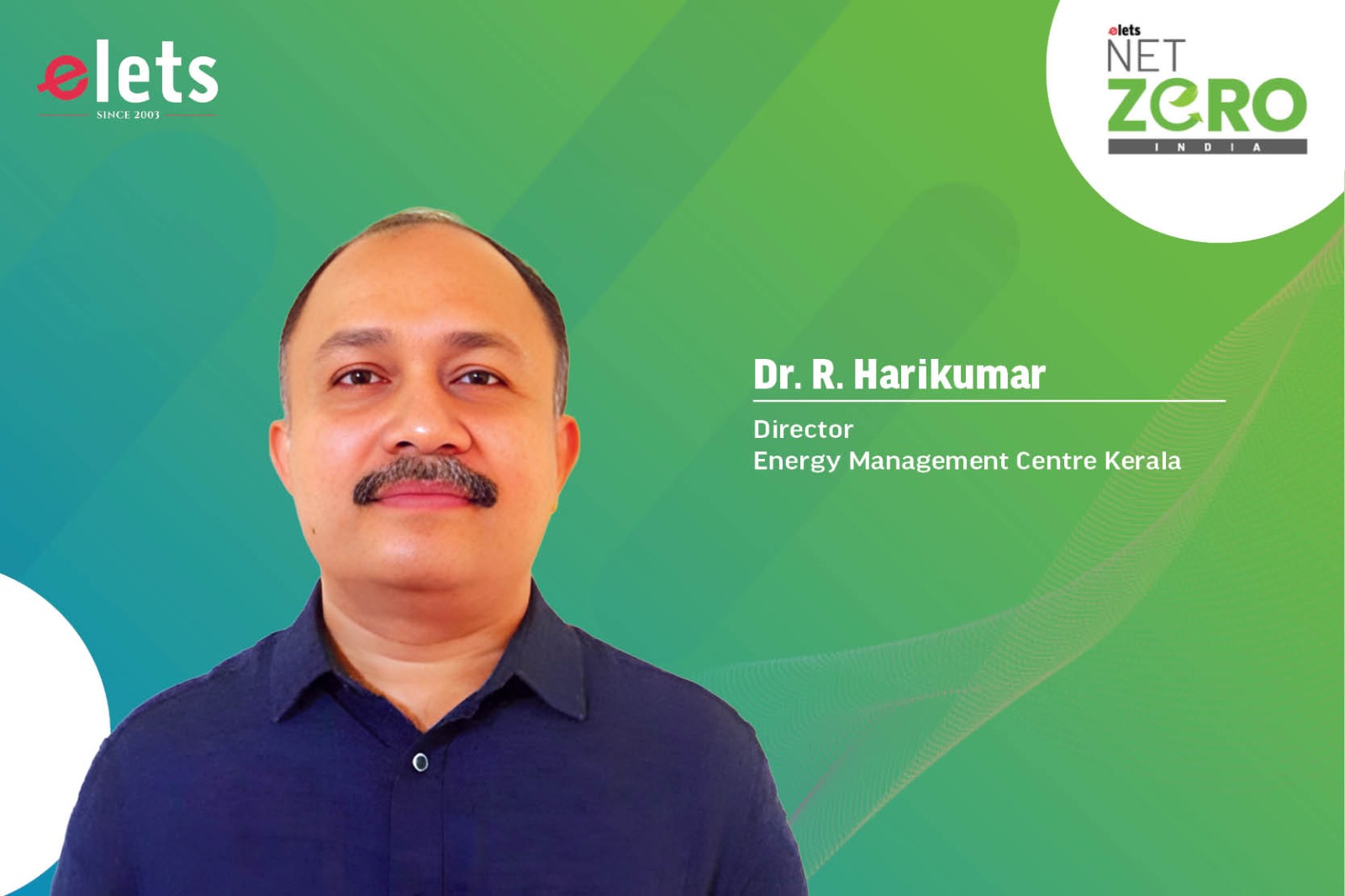
Kerala is pioneering renewable energy adoption with ambitious targets—a full transition to green energy by 2040 and carbon neutrality by 2050. Despite land constraints, the state prioritizes rooftop solar, battery storage, and innovative policies. With strong institutional coordination, Kerala is setting a benchmark for sustainable energy management in India. Dr. R. Harikumar, Director of the Energy Management Centre Kerala, shares more about the state’s renewable strides in an exclusive interaction with Krishna Mishra of Elets News Network (ENN).
Kerala has been a pioneer in many areas. How does the state’s approach to energy management, particularly in promoting renewable energy and energy efficiency, differentiate it from other states in India, and what specific lessons can other states learn from Kerala’s experiences?
Kerala has set ambitious energy goals, aiming for a complete transition to renewable energy by 2040 and achieving carbon neutrality by 2050. Given its land constraints, the state prioritises rooftop solar installations, adding 35 MW to the grid each month. As of January 31, 2025, Kerala’s renewable energy capacity stands at 3,598.41 MW, encompassing solar, small hydro, wind, and bioenergy sources. The state’s daytime energy generation exceeds demand, enabling power export to the grid. Currently, Kerala produces 30% of its total energy needs, relying on imports from the central grid for the remainder.
With domestic consumption accounting for 51% of total energy use, peak demand occurs between 6 PM and 11 PM. To manage this, Kerala is integrating battery energy storage systems to reduce peak load dependence on external sources and alleviate economic strain. Decentralised battery storage and pumped storage hydropower are being explored to enhance grid stability.
To align power consumption with solar energy production, initiatives such as Angan Jyothi in Anganwadis and Mass Cooking in schools encourage energy use during off-peak hours. Kerala also leads the country in electric vehicle adoption, with the highest penetration rate nationwide.
To achieve net-zero targets, the state maximises energy efficiency and renewable energy potential through three key agencies:
- Energy Management Centre (EMC) – Kerala’s designated agency for enforcing the Energy Conservation Act and implementing energy efficiency improvements.
- Agency for New and Renewable Energy Research and Technology (ANERT) – The nodal agency for renewable energy project implementation.
- Kerala State Electricity Board Limited (KSEB) – The primary entity responsible for electricity generation and distribution. The close coordination among these agencies serves as a replicable model for other states striving for energy sustainability.
Considering Kerala’s specific geographical and economic context, what are the most promising renewable energy sources for the state, and what strategies are being employed to overcome the challenges associated with their large-scale adoption?
Solar energy is the most promising renewable source for Kerala. However, land availability poses a major challenge. To address this, Kerala promotes rooftop solar installations, maximizing energy generation without additional land use.
Additionally, small hydro projects are being developed due to their minimal environmental impact, further diversifying the renewable energy mix. Pumped storage hydropower is also a key focus, allowing excess daytime solar energy to be stored and utilized during peak evening hours.
How is EMC Kerala working to enhance energy literacy among different segments of the population, and what innovative approaches are being used to make energy efficiency-related information accessible and engaging?
With domestic electricity consumption forming the largest share of Kerala’s energy use, EMC focuses on reaching households through youth engagement. Energy Clubs have been established in 10,000 schools, fostering energy-conscious behaviour among students.
A dedicated capacity-building program targets women entrepreneurs, industrial and commercial sectors, and the agricultural community, equipping them with knowledge and skills for energy efficiency.
EMC also organizes the International Energy Festival Kerala (IEFK), a three-day event featuring panel discussions, presentations, and exhibitions on energy transition and decarbonization. The festival’s first edition coincided with EMC’s 28th anniversary, held annually on February 7-9.
The event attracts prestigious institutions, including BARC, ISRO, WRI India, CSTEP, AEEE, India Smart Grid Forum, GGGI, CLASP, GBPN, WISE, IFC-World Bank Group, ANDRITZ HYDRO, and DMR-KIIFCON.
How effective are Kerala’s current policies and regulations in incentivising renewable energy adoption, promoting energy efficiency, and attracting investments in the clean energy sector? What policy adjustments or new initiatives are needed to accelerate the transition to a more sustainable energy future?
Despite limited state-provided incentives, Kerala’s renewable energy capacity is growing significantly due to the widespread adoption of solar rooftop PV systems in the domestic sector. The people of Kerala are highly receptive to green energy initiatives, often embracing them even without substantial subsidies. This is evident in the rapid increase in electric vehicle (EV) adoption, despite the absence of state-level subsidies.
To align power consumption with solar energy production, initiatives such as Angan Jyothi in Anganwadis and Mass Cooking in schools encourage energy use during off-peak hours.
To further support and accelerate energy efficiency and renewable energy expansion, continuous policy revisions are necessary. The Kerala Power Policy is currently being revised to ensure sustainable growth of the state’s power system, focusing on energy sustainability, security, reliability, accessibility, and affordability. Its vision, “Powering Kerala Sustainably,” is centred on resilience and inclusivity in energy production, distribution, and consumption. The policy also addresses land constraints and financial challenges in power system development.
Also Read :- KSEB Powering Kerala’s Energy future
Kerala is also preparing:
- The Kerala Pumped Storage Hydropower (PSP) Policy – to facilitate energy storage projects.
- The Kerala Green Hydrogen Power Policy – to position the state as a leader in green hydrogen and ammonia production in India.
As a frontrunner in clean energy initiatives, Kerala is setting a benchmark for other states to follow.
Looking ahead to the next decade, what are the key priorities and strategic directions for EMC Kerala in the evolving energy landscape? How will the organization leverage emerging technologies, innovative business models, and collaborative partnerships to achieve its goals and contribute to Kerala’s sustainable development objectives?
EMC is spearheading the Go Electric Campaign, a comprehensive initiative promoting electrification across various sectors to enhance energy efficiency and sustainability. Key focus areas include:
- Electric Vehicle (EV) Expansion – Encouraging EV adoption through infrastructure development, incentives, and public awareness campaigns.
- Electric Cooking (E-Cooking) – Promoting EV cooking solutions for households and institutions to reduce reliance on conventional fuels and optimize renewable energy usage.
- Renewable Energy Integration – Ensuring a cleaner and more sustainable power supply through strategic grid integration.
By leveraging emerging technologies, innovative business models, and collaborative partnerships, EMC aims to transform Kerala into a leader in clean energy and sustainable development over the next decade.
Be a part of Elets Collaborative Initiatives. Join Us for Upcoming Events and explore business opportunities. Like us on Facebook , connect with us on LinkedIn and follow us on Twitter, Instagram.
"Exciting news! Elets technomedia is now on WhatsApp Channels Subscribe today by clicking the link and stay updated with the latest insights!" Click here!





